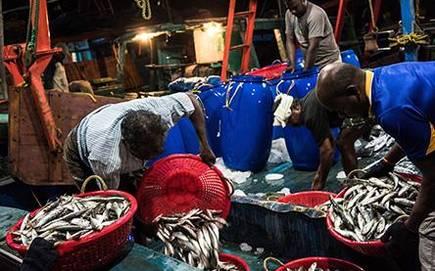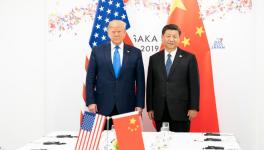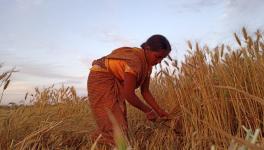Small Scale Fishers Ask Centre Not to Back Curbs on Subsidies in WTO Negotiations

Image Courtesy: Business Line
Hyderabad: Small scale fish workers across India have asked the Centre to protect the interest of their community and object to the controversial proposals in the ongoing negotiations with the World Trade Organisation (WTO) on fisheries subsidies.
The WTO is trying to secure an agreement with its member countries on disciplines “eliminating subsidies for illegal, unreported and unregulated fishing and prohibiting certain forms of fisheries subsidies that contribute to overcapacity and overfishing, with special and differential treatment for developing and least-developed countries,” by 2020.
In a letter dated October 4 and addressed to Piyush Goyal, the Union Commerce and Industry Minister, and copied to Santiago Wills, Chairperson of the negotiating group of WTO, the National Platform for Small Scale Fish Workers (NPSSFW) said that fisheries subsidies cannot and should not be determined or disciplined on consideration of international trade.
The NPSSFW represents fish workers’ organisations in 19 states in India, both maritime and inland.
The fish workers’ body raised objections over the ongoing negotiations regarding the jurisdiction of WTO to cut fisheries subsidies, the imposition of non-subsidy regime on water bodies and denial of subsidies that are “harmful” and “exploitative” of marine resources.
Stating that the “determination of fisheries subsidies should be done by the concerned regional, national, provincial and other authorities with mandatory participation of primary stakeholders,” the NPSSFW argued that the WTO is neither a fisheries administrator nor an environmental protection agency. “Its activities are dominated by commercial interests of its member countries even when it is negotiating in the name of environmental conservation, making the outcomes unfair both from economic and environmental perspectives,” said the platform.
While the WTO aims at eliminating the subsidies given to Illegal, Unregulated and Unreported (IUU) fishing, Pradip Chatterjee, Convenor of NPSSFW told NewsClick that the given definition of IUU fails to recognise the realities of small scale fishers in developing countries such as India. “Small scale fishing is a traditional right of fishing communities who must be given preferential subsidies as the large-scale mechanised sector fishing has been exploiting the fisheries resources,” said Chatterjee. He added that thousands of small fishing boats used by traditional fishermen are yet to be registered and cannot be considered “illegal”. “Indian fisheries lack regulation and proper accounting systems,” he said.
Reportedly, in last month’s negotiations, India proposed to exempt developing countries with Gross National Income lower than $5,000 per annum from the proposed prohibition on subsidies.
Presently, India’s central government and several states governments provide subsidies to fishing communities in the form of loans and through various schemes subsidising the cost of boats, nets and other fishing equipment.
Furthermore, NPSSFW demanded the WTO to consider the “elimination of subsidies to fishing with destructive fishing gears and to large-scale mechanised fishing sector and protection of subsidies to small scale fisheries applied to a country-specific or regional context.” It stated that in India, the small scale fishers have already demanded the removal of subsidy to the large-scale mechanised sector and destructive fishing.
Currently, the WTO is holding another cluster of negotiations scheduled from October 5-10. The trade body aims to reach an agreement on the fishing subsidies by the end of 2020.
Get the latest reports & analysis with people's perspective on Protests, movements & deep analytical videos, discussions of the current affairs in your Telegram app. Subscribe to NewsClick's Telegram channel & get Real-Time updates on stories, as they get published on our website.
























